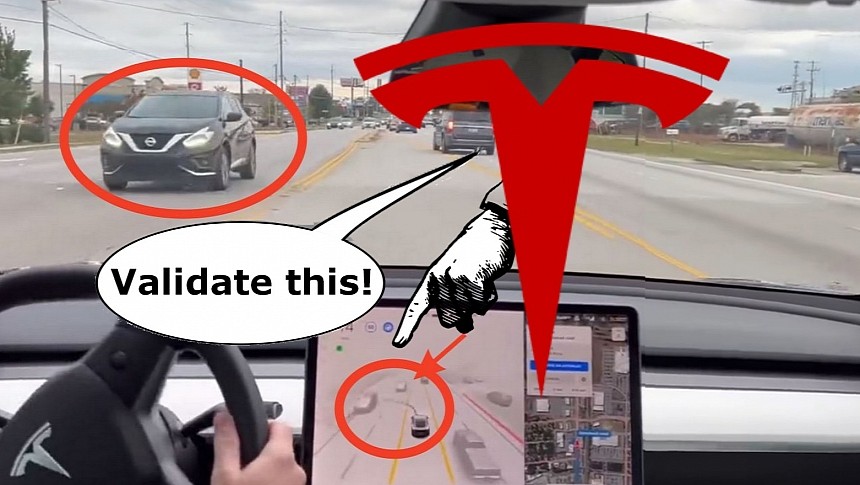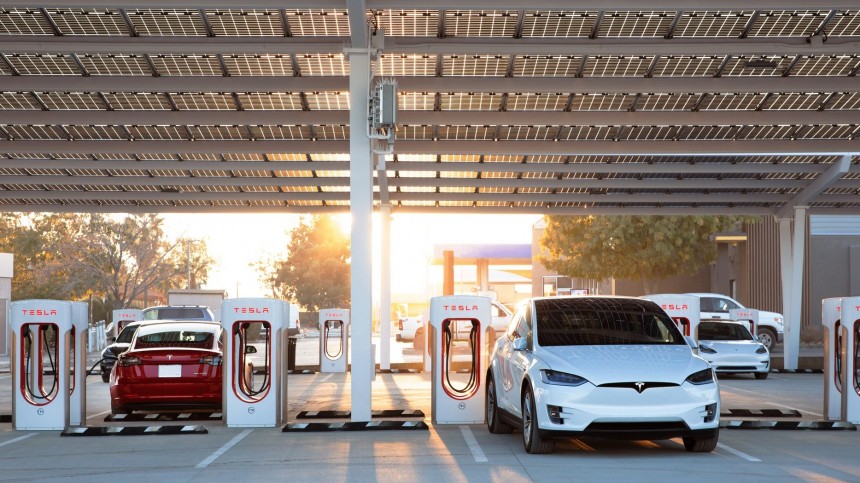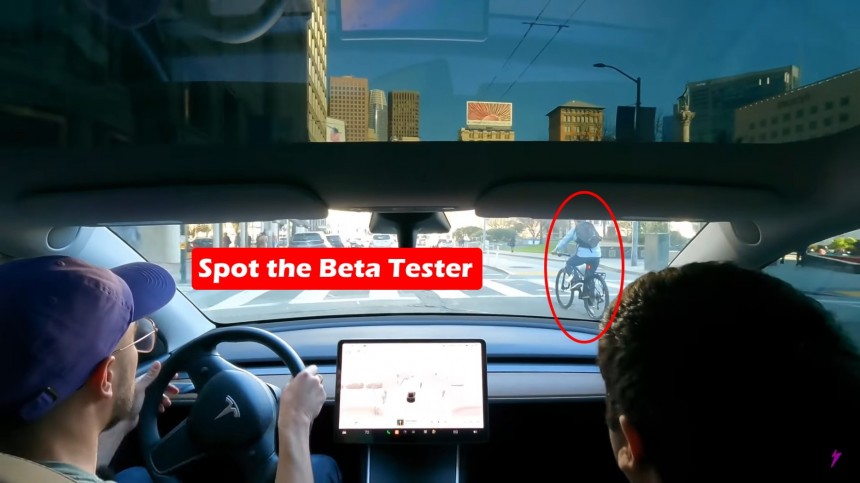Elon Musk said at the Q2 2023 earnings call that autonomy should be solved this year. He has said that every year since 2016. What made things different this time was that the Tesla CEO said the BEV maker is in early discussions "with a major OEM about using Tesla FSD." If this can be trusted more than everything else Musk says, rest assured that the BEV maker wants more than money from such a deal: it wants validation and surrender.
Apart from Tesla investors in need of a narrative, no one else takes Full Self-Driving seriously. The several episodes caught on camera of the system putting its users at risk of collisions were more than enough for safety advocates such as Ralph Nader to urge American legislators to ban it from US roads as soon as possible. Promises of improvement were never convincing, which is a massive threat to Musk's plans.
The CEO already said that solving FSD is "the difference between Tesla being worth a lot of money and being worth basically zero." With public opinion mocking what the company achieved so far, having a major carmaker licensing the technology would help Musk try to create a NACS effect with its software.
If you have no idea what I am talking about, several automakers announced they would adopt the North American Charging Standard (NACS) from 2024 onward. Although NACS connectors are considered elegant, light, and effective, the reason behind this mass adoption has more to do with access to the Supercharging network than with a recognition of how superior that connector is compared to CCS2. Automakers have realized they can only sell battery electric vehicles (BEVs) if these vehicles have reliable chargers. The only network that comes close to that definition is the one Tesla built for its own cars. Unfortunately, it is already clear that they only work reliably for Tesla vehicles, but all automakers willing to use Superchargers may have time to solve that until 2024.
If the BEV maker really manages to have anyone license FSD, it may be able to say the software is more valuable than most people think. The company that decides to license it will also have to defend its decision, which will make it act like a Tesla advocate, which may be embarrassing on its own. Theoretically, Ford does not need that because it already has a better driver assistance system called BlueCruise, as Consumer Reports determined. The ranking established by the consumer rights organization also excludes General Motors (Super Cruise), Mercedes-Benz (Driver Assistance), BMW (Driver Assistance Professional), Toyota (Safety Sense 3.0), and Volkswagen (Travel Assist).
If you think it through, any company willing to license FSD should ask Tesla for money. Think about it: Tesla is under investigation by the National Highway Traffic Safety Administration (NHTSA) due to at least 16 crashes against emergency vehicles while Autopilot was engaged. The last time I checked, nineteen people had already died using Autopilot. In other words, any automaker willing to employ the same software will not be able to say they did not know about that. It looks like a sure path into liabilities, investigations, and legal risks unless the alleged licenser follows the same moral crumple zone strategy Tesla adopted: its legal disclaimers blame drivers for anything that happens with the vehicle while the software is in use. So far, it has worked perfectly for the BEV maker.
There's another delicate aspect of licensing FSD: implicitly admitting your team was unable to create anything similar or better. It is capitulation, a white flag to Tesla that would be well expressed as: "If you can't beat them, join them." To make matters worse, the Consumer Reports' ranking suggests it is not that hard to come up with a better solution. Suppliers like Bosch and Continental would happily sell their advanced driver assistance systems (ADAS) to automakers and not wish to brag they had developed them. That allows most carmakers to keep some engineering dignity and at least pretend to have put some effort into anything that promises to be close to autonomous driving.
One could argue that such automakers would be making a strategic move to know what Tesla is doing with software and hardware. In other words, the idea behind licensing FSD would be to have an inside view of what the American BEV maker has genuinely achieved. However, that could also work the other way around: anyone licensing the tech from Tesla might also have to offer it at least a glimpse of how far they have gone in their ADAS efforts.
This all could make sense if Tesla had really achieved 1 million robotaxis by the end of 2020, something Elon Musk promised in 2019. He also stated in 2016 that Tesla vehicles had all the hardware they would need for full autonomy with HW2.5. In 2019, he said the same about HW3.0. We're now with HW4.0 and still far from a car that drives itself and earns money for its owner instead of sitting in a parking lot waiting to go home.
Unless Tesla proves FSD lives up to its name in a fail-proof manner, there's nothing good for anyone considering licensing the software. Musk said its company is not trying to keep it for itself and that it is "more than happy to license it to others." Indeed: Tesla needs that more than anyone else. The deal is if they will realize that before committing to sign any contract.
The CEO already said that solving FSD is "the difference between Tesla being worth a lot of money and being worth basically zero." With public opinion mocking what the company achieved so far, having a major carmaker licensing the technology would help Musk try to create a NACS effect with its software.
If you have no idea what I am talking about, several automakers announced they would adopt the North American Charging Standard (NACS) from 2024 onward. Although NACS connectors are considered elegant, light, and effective, the reason behind this mass adoption has more to do with access to the Supercharging network than with a recognition of how superior that connector is compared to CCS2. Automakers have realized they can only sell battery electric vehicles (BEVs) if these vehicles have reliable chargers. The only network that comes close to that definition is the one Tesla built for its own cars. Unfortunately, it is already clear that they only work reliably for Tesla vehicles, but all automakers willing to use Superchargers may have time to solve that until 2024.
If you think it through, any company willing to license FSD should ask Tesla for money. Think about it: Tesla is under investigation by the National Highway Traffic Safety Administration (NHTSA) due to at least 16 crashes against emergency vehicles while Autopilot was engaged. The last time I checked, nineteen people had already died using Autopilot. In other words, any automaker willing to employ the same software will not be able to say they did not know about that. It looks like a sure path into liabilities, investigations, and legal risks unless the alleged licenser follows the same moral crumple zone strategy Tesla adopted: its legal disclaimers blame drivers for anything that happens with the vehicle while the software is in use. So far, it has worked perfectly for the BEV maker.
There's another delicate aspect of licensing FSD: implicitly admitting your team was unable to create anything similar or better. It is capitulation, a white flag to Tesla that would be well expressed as: "If you can't beat them, join them." To make matters worse, the Consumer Reports' ranking suggests it is not that hard to come up with a better solution. Suppliers like Bosch and Continental would happily sell their advanced driver assistance systems (ADAS) to automakers and not wish to brag they had developed them. That allows most carmakers to keep some engineering dignity and at least pretend to have put some effort into anything that promises to be close to autonomous driving.
This all could make sense if Tesla had really achieved 1 million robotaxis by the end of 2020, something Elon Musk promised in 2019. He also stated in 2016 that Tesla vehicles had all the hardware they would need for full autonomy with HW2.5. In 2019, he said the same about HW3.0. We're now with HW4.0 and still far from a car that drives itself and earns money for its owner instead of sitting in a parking lot waiting to go home.
Unless Tesla proves FSD lives up to its name in a fail-proof manner, there's nothing good for anyone considering licensing the software. Musk said its company is not trying to keep it for itself and that it is "more than happy to license it to others." Indeed: Tesla needs that more than anyone else. The deal is if they will realize that before committing to sign any contract.








































